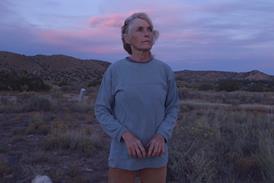
The BFI is to provide additional funding for ‘wellbeing facilitators’ on projects it backs, in a bid to improve the working culture of the UK film industry.
The wellbeing facilitator role is designed to champion a positive working culture, as well as being an independent point of contact for any issues – including stress, bullying and harassment, discrimination, and adult safeguarding – throughout the life of a production.
The move comes in the wake of incidents such as Harvey Weinstein’s conviction in the US for rape and assault and last year’s bullying and harassment accusations against Noel Clarke in the UK, and an increased focus on the need to address mental health issues within the film industry.
Funding for the role will be available to projects backed with BFI Film Fund production funding. The BFI is working with non-profit mental health organisation 6ft From The Spotlight on the initiative.
The BFI initially piloted the role on projects in production in 2021 and hopes that it will be embraced by the industry in a similar way to how intimacy directors have become the norm over the last 5-6 years. The topic was discussed during an online panel hosted by We Are UK Film at Cannes 2021.
What is a wellbeing facilitator?
Wellbeing facilitators join productions from the outset. They have a regular physical presence on set, but the role is set up to maintain independence from the core team so everyone – at all levels, across the entire cast and crew – feels able to approach them in confidence.
The work of wellbeing facilitators differs from production to production, but core responsibilities include advising producers and heads of departments on how to prevent stress and mental health issues arising, to support them in meeting their legal duty of care to cast and crew.
They also assist in implementing the BFI Bullying & Harassment Guidance and Principles, act as a mediator to resolve issues if necessary, as well as coach newly promoted crew and those supervising a team for the first time. Wellbeing Facilitators are not counsellors or therapists but can refer and signpost to support and resources.
The collaboration with 6ft From The Spotlight also sees training for new wellbeing facilitators. The course covers mental health and the law and mental health risk policy, dealing with bullying and harassment, resilience and intervention, stress risk assessment, positive psychology, and psychological safety.
BFI-backed film Scrapper employed Matt Longley as a wellbeing facilitator during its production. Producer Theo Barrowclough said: “We were blessed with a brilliant crew, but even in those cases, every production needs to constantly hold itself up to being an inclusive and safe place to ply your craft. Matt’s presence on set as someone the crew knew they could seek out, speak to confidentially and resolve issues with, made a big difference to me as a producer.”
Jennifer Smith, BFI’s head of inclusion, said: “Turning the tide on poor working practices in our industry is a collective endeavour and one we are all responsible for. The introduction of the Wellbeing Facilitator builds on our existing Guidance and Principles to prevent bullying, harassment and racism and provides additional invaluable support to producers and heads of department to put wellbeing front and centre of their productions. Our goal is that this role becomes normalised across industry, because a positive and safe working environment is essential in order to retain our existing talented workforce and to attract new people to the sector.”
























No comments yet